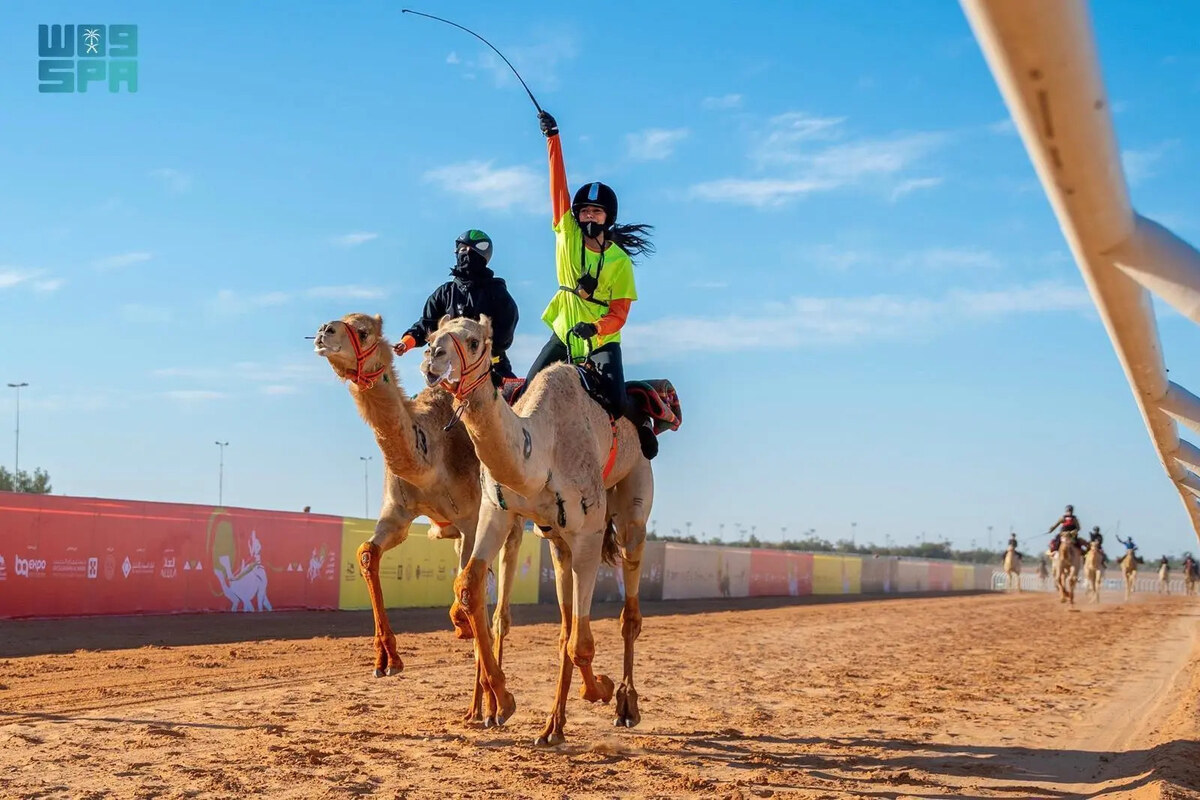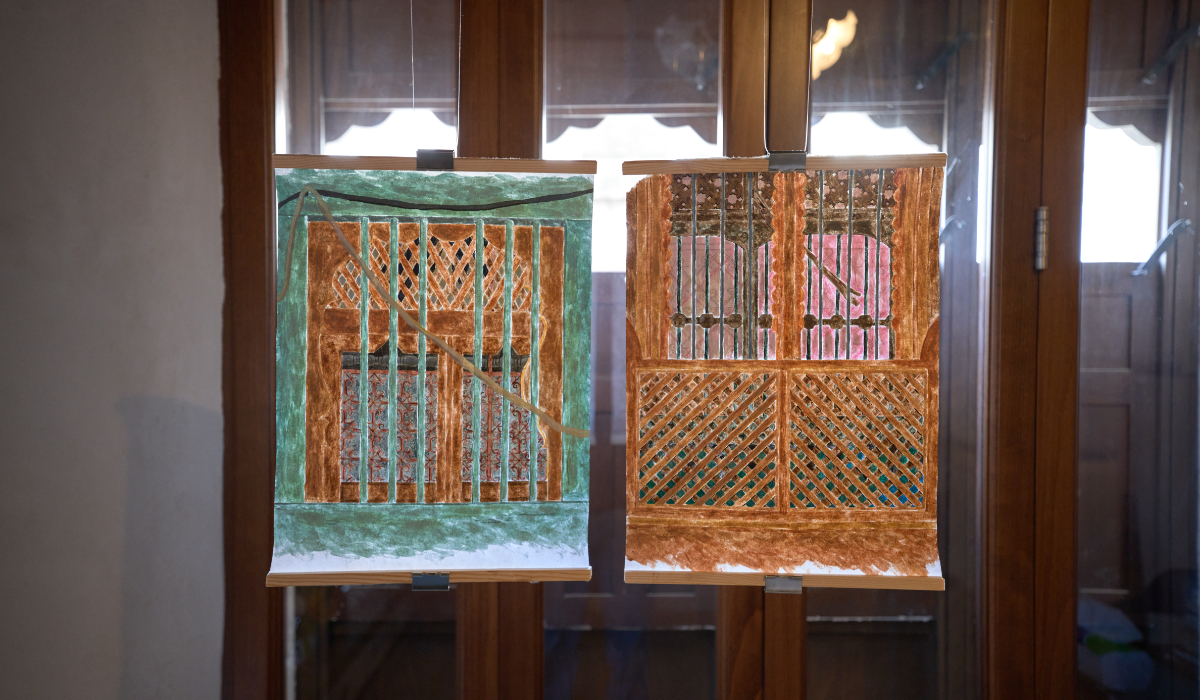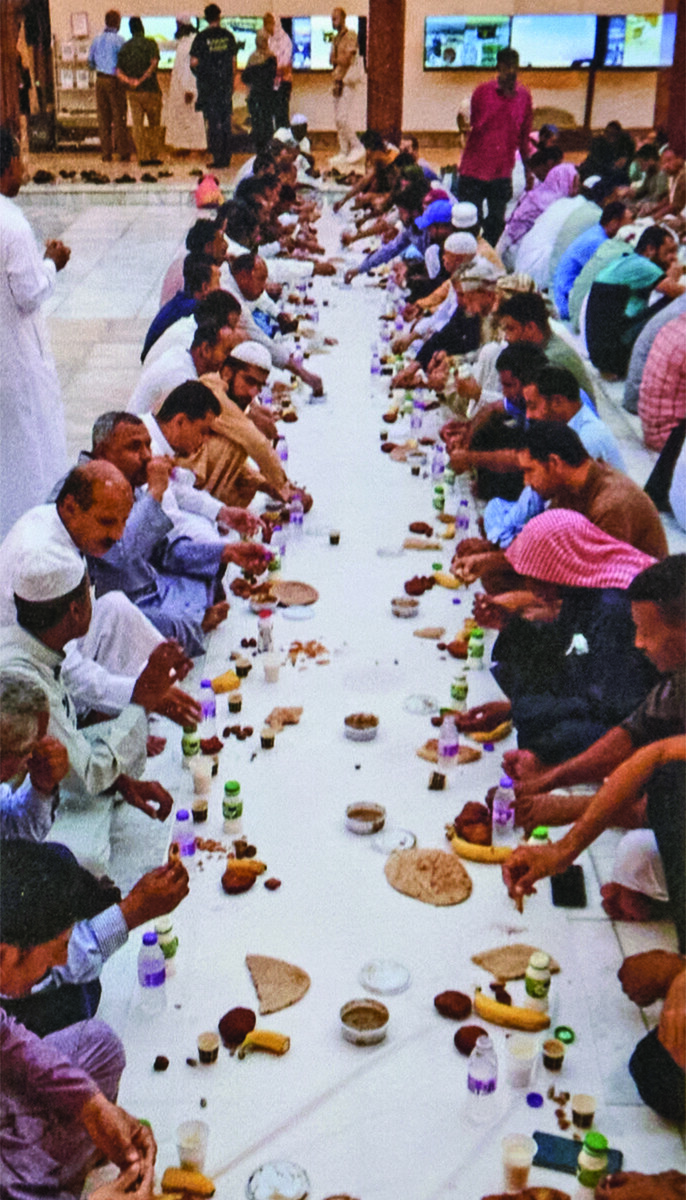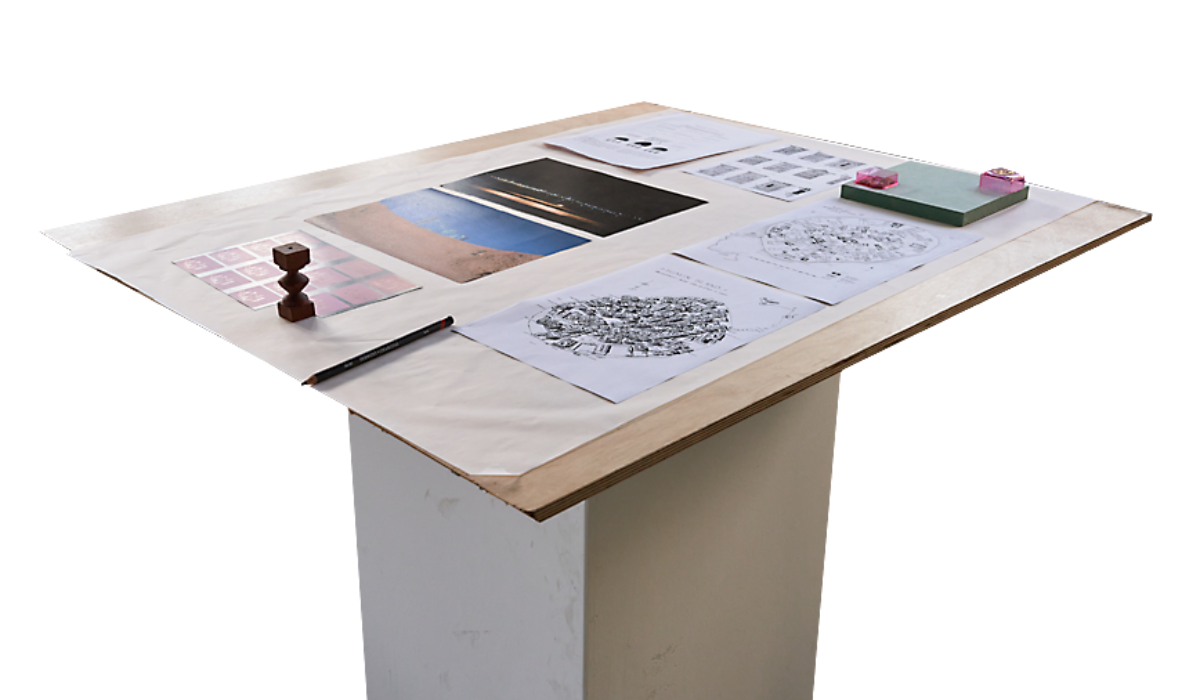RIYADH: In bustling Qatif, where the vibrant flavors of Italy meet the rich culture of Saudi Arabia, a memorable dining experience awaits that challenges perceptions and redefines communication.
Imagine a place where the rhythm does not come from music but from the graceful motions of hands and the expressive faces of its staff.
Arina Pizzeria, entirely staffed and operated by deaf individuals, offers not only exceptional food but also a powerful narrative of resilience and community.
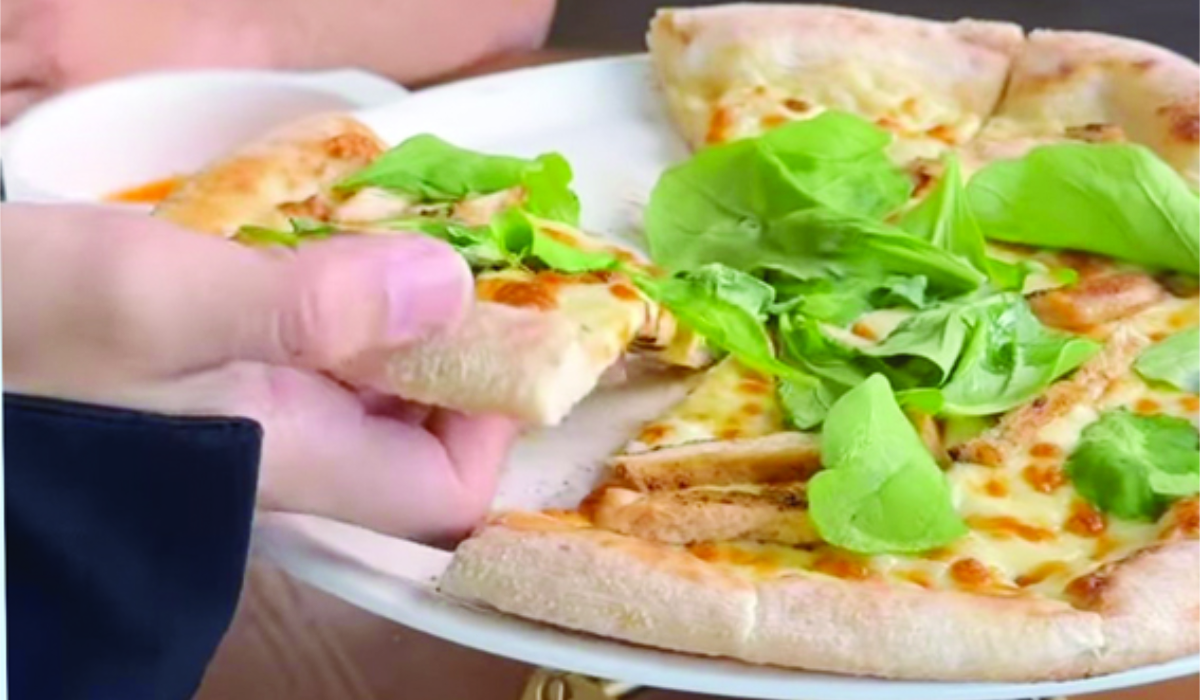
Husband-and-wife duo Hussain Alshbrka and Arina Gabulyan opened Arina Pizzeria in September, marking a milestone as the first restaurant in Saudi Arabia to be fully staffed and operated by deaf individuals. (AN photos/Instagram/arinapizza.sa)
Husband-and-wife duo Hussain Alshbrka and Arina Gabulyan earned their master’s degrees in business management in the US and returned to their hometown of Qatif to pursue their passions for culinary arts and inclusivity.
In September this year they proudly opened Arina Pizzeria, marking a groundbreaking milestone as the first restaurant in Saudi Arabia to be fully staffed and operated by deaf individuals.
“I was inspired by the idea of creating a place where the deaf community, especially those who came to Qatif for work, could meet,” Alshbrka told Arab News.
HIGHLIGHTS
• Arina Pizzeria, entirely staffed and operated by deaf individuals, offers not only exceptional food but also a powerful narrative of resilience and community.
• By raising awareness about sign language, Arina encourages connection and interaction across all parts of society.
This vision emerged from his previous role as the general manager of Three Dimension Trading Est., where he regularly interacted with deaf individuals.
Speaking about the inspiration behind the name, Alshbrka said: “I wanted to honor my beautiful wife, so I named the restaurant Arina.”

Hussain Alshbrka, Arina Pizzeria co-founder
This personal touch is complemented by a creative design ethos, he explained: “I wanted the restaurant to be a creative blend of architecture and art. I wanted it to be an attractive gathering place that satisfies the eye and is unique in appearance, with a modern and elegant architectural style.”
Upon entering, guests are greeted by the restaurant’s motto: “A slice of silence, a world of flavor.”
At Arina, effective communication between employees and customers is crucial. “We use multiple communication methods. Technology provides an excellent and effective tool for translating speech into written words,” Alshbrka said.
This restaurant proves that the deaf are an integral part of society. It helps to integrate the deaf hand in hand with hearing individuals and strengthens their bond.
Hussain Alshbrka, Arina Pizzeria co-founder
“We also use easily accessible QR code technology on tables for customers to scan with their mobile phones, producing a visual representation that is a preferred method of communication for our deaf employees.”
The restaurant is breaking barriers in the community. “Many customers want to learn sign language as a way to communicate with us directly, which is always welcomed and appreciated,” he added.
The staff undergo rigorous training. “If they do not already possess these skills, it is easy to learn a new language when it is used regularly, especially in a work environment with somewhat predictable responses.”
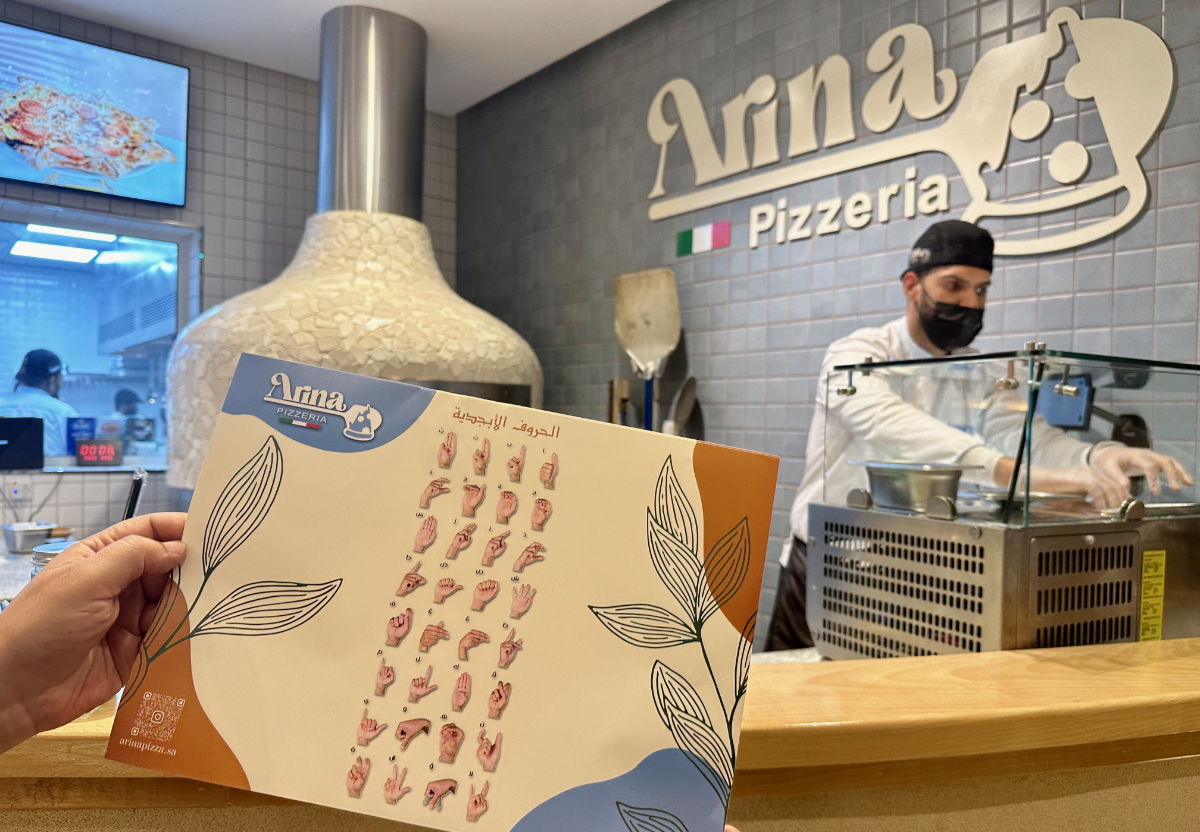
Upon entering, guests are thoughtfully presented with a card showcasing the alphabet in sign language. (AN photo)
Alshbrka’s belief in equality is reflected in Arina’s commitment to hiring deaf individuals: “I am convinced that a deaf person is capable of doing anything a hearing person can do when given the opportunity and training.”
By employing deaf individuals, Arina demonstrates that abilities transcend barriers and that everyone deserves an equal opportunity to thrive.
Customer interactions at Arina have led to memorable moments, highlighting the restaurant’s unique approach. He recalled: “One of my most unique and unforgettable experiences was when one of our customers expressed gratitude to our staff in Bulgarian. This again demonstrated that language should not be a barrier between people.”
The response from the local community has been overwhelmingly positive. Alshbrka emphasized: “The language barrier between our hearing customers and deaf employees has eroded, and we have begun to see the fruits of our labor.”
This collective effort has created a harmonious environment where everyone can come together.
Despite the challenges faced during the launch, Alshbrka said the support from across the Kingdom has been a testament to the community’s embrace of Arina.
The restaurant plays a vital role in promoting a broader understanding of deaf culture. “This restaurant proves that the deaf are an integral part of society,” its founder said. “It helps to integrate the deaf hand in hand with hearing individuals and strengthens their bond.”
By raising awareness about sign language, Arina encourages connection and interaction across all parts of society.
Arina goes beyond simply serving food, it serves as a beacon of empowerment, proving that with passion and partnership, barriers can be broken, allowing diverse voices to harmonize beautifully.















